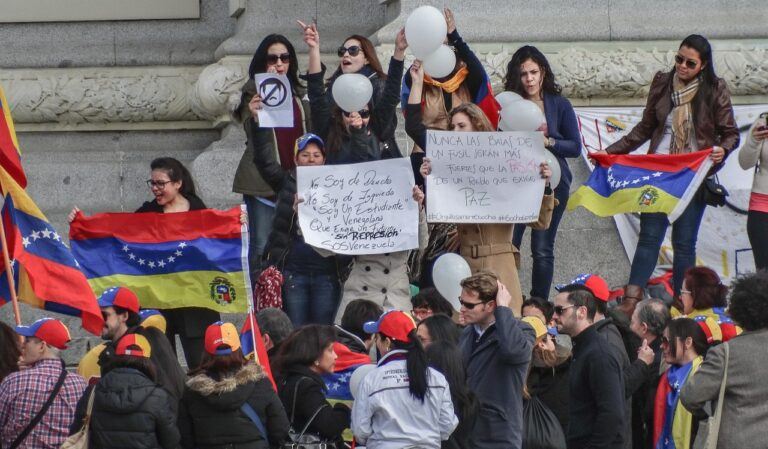Venezuelan president Nicolas Maduro has claimed on numerous occasions that the nation’s Petro cryptocurrency is backed by 5 billion barrels of petroleum reserves. Reuters has conducted an extensive investigation, in order to determine whether Maduro’s heavily promoted digital currency is actually being used by individuals and businesses in Venezuela.
According to people currently residing in Atapirire, a small isolated town in Venezuela situated near most of the country’s massive oil fields, the government has not been tapping into its reserves. Igdalia Diaz, a resident of Atapirire, revealed that:
“There is no sign of that petro here.”
Diaz also complained about the poor living conditions in her area by noting that there are many power outages every day, deteriorating school buildings and roads, and hardly anything for people to eat.
Four-Month Long Investigation
Moreover, during Reuter’s four-month-long investigation, which included speaking with many cryptocurrency traders in Venezuela and those familiar with the nation’s oil-field valuation, the UK-based news agency discovered that there was almost no economic activity involving the controversial state-backed Petro cryptocurrency.
In fact, the investigation revealed that the Petro is not even listed on, or supported by, any of Venezuela’s major digital currency exchanges. There were also no local merchants found who accepted the Petro.
The only people who claimed to have purchased the questionable cryptocurrency had shared their experiences on local crypto-related forums. While none of the Petro users disclosed their identities, one individual said they had been “scammed.”
Another person complained that although they were able to buy Petro tokens without any issues, the cryptocurrency did not really have much value due to the “awful” media coverage it received and the crippling US-led sanctions on the oil-rich country.
“Nobody” Has Been Able To Use The Petro
Despite these complaints and reports from numerous Venezuelan citizens, Maduro has claimed that he has managed to raise $3.3 billion from Petro-related transactions. He also said that the Petro is being used to pay for goods imported by Venezuela.
However, Hugbel Roa, a minister working closely with the development of the Petro, revealed that “nobody has been able to make use of the petro … nor have any resources been received.” Roa explained that it may not even be possible to use the state-backed digital currency at this time, as it is still in its developmental stages.
There is also nobody physically working at the official address of the Superintendence of Cryptoassets, a government body reportedly tasked with managing Petro-related transactions. A receptionist at the nation’s Finance Ministry said that “it does not yet have a physical presence.”
Joselit Ramirez, the president of Venezuela’s Cryptoassets department, has not yet replied to messages sent to his official social media accounts regarding information on the state-sponsored cryptocurrency. The department’s website is also not accessible.
“No Way To Link Prices” To Petro
Venezuela’s Industry Ministry, which reportedly manages the Cryptoassets agency, has not responded to emails or phone calls inquiring about the Petro. Even though Reuters’ investigation strongly suggests that the state-backed digital currency is not being used in Venezuela, president Maduro announced recently that most monetary transactions will be pegged to the Petro.
Maduro said that the exchange rate for the Venezuelan Bolivar, salaries, and pensions will all be pegged to the nation’s cryptocurrency. Soon after the president’s announcement, local residents including economists and experienced cryptocurrency investors claimed that the Petro could not practically be used for transactions.
Alejandro Machado, a Venezuelan computer scientist who is familiar with the Perto’s development, remarked that,
“There is no way to link prices or exchange rates to a token that doesn’t trade, precisely because there is no way to know what it actually sells for.”
250,000 Bolivars For 1 USD
The extensive reports from local residents and government officials indicate that the Petro is unlikely to help resolve Venezuela’s economic woes, which have resulted in the nation’s local currency, the bolivar, becoming worthless due to hyperinflation. At current market rates, 1 USD is trading for nearly 250,000 bolivars.
Notably, there’s also no evidence regarding Maduro’s claims about Petro’s initial coin offering (ICO), and its use in billions of dollars worth of transactions. Tom Robinson, the chief data analyst at UK-based blockchain data firm Elliptic, noted:
“This certainly doesn’t look like a typical ICO, given the low level of transaction activity. We have found no evidence that anyone has been issued a petro, nor of it being actively traded on any exchange.”









